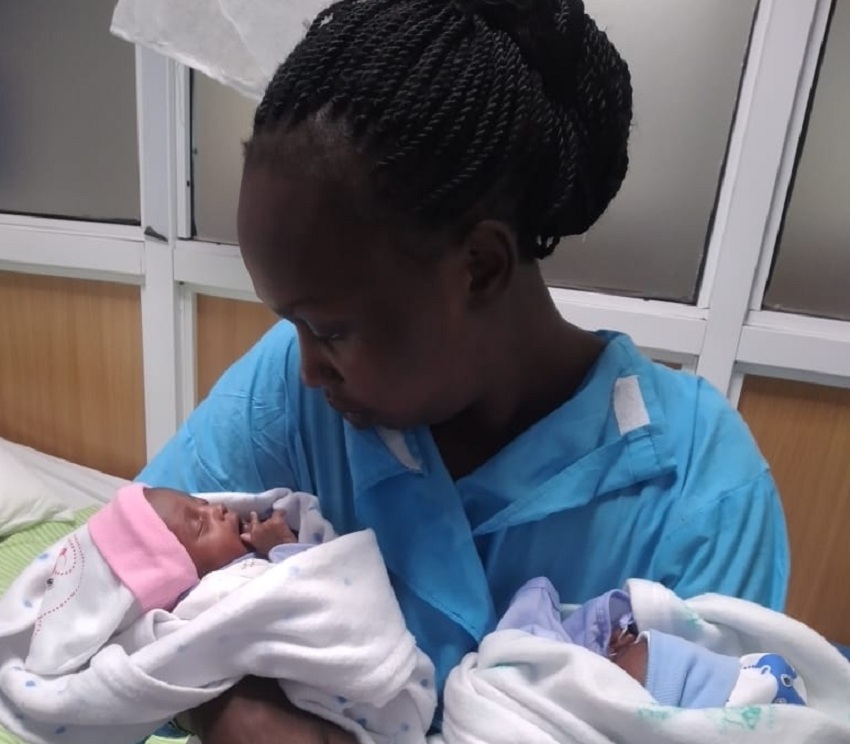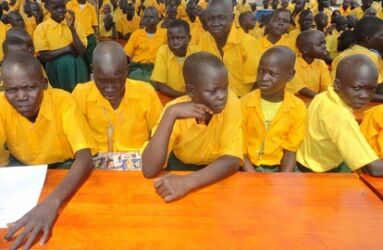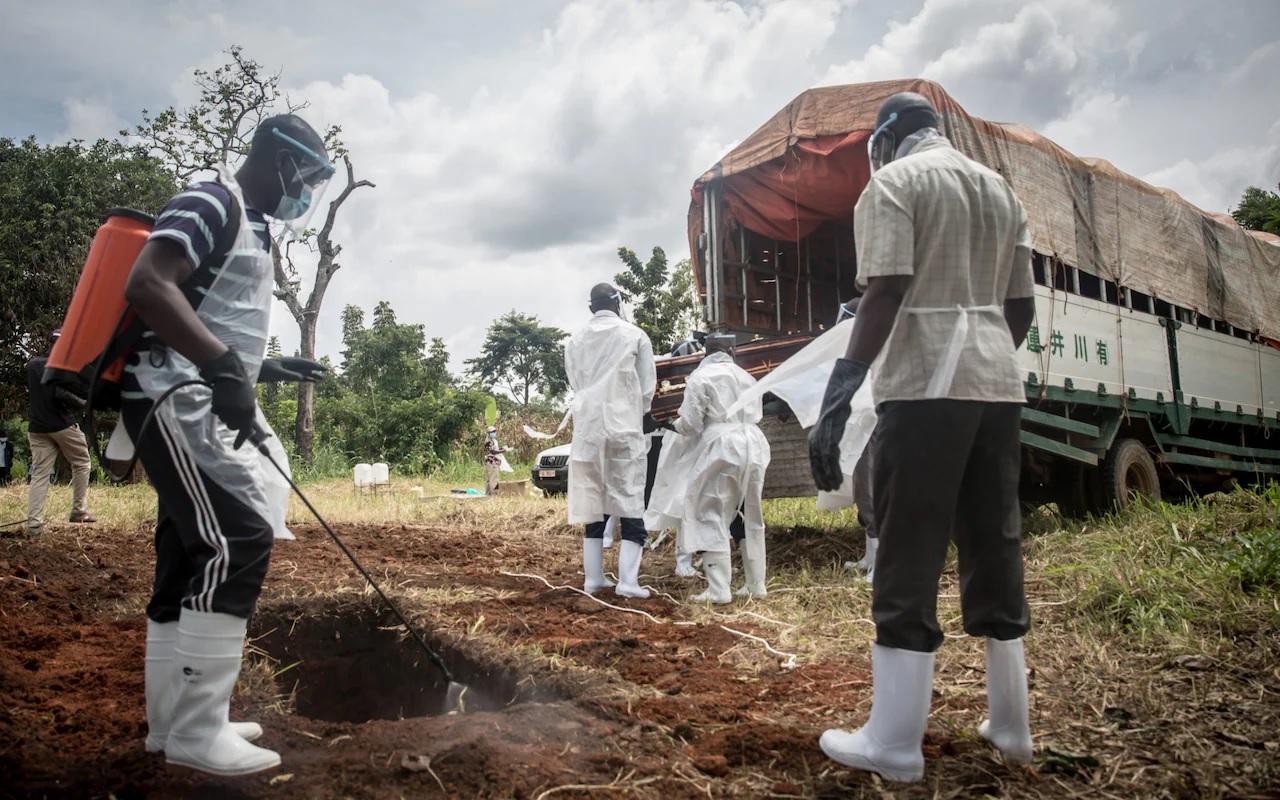The South Sudanese woman who is being detained at a Nairobi hospital. Photo by Voice of Reconciliation 98:4 FM
NAIROBI – A South Sudanese mother is pleading for help after being detained at a Nairobi hospital. Aluel James Deng says she had an emergency delivery and had twins at Ruai Family Hospital in Nairobi. She says when she could not pay the medical bill of 1.4 million shillings or about 13-thousand dollars, hospital authorities would not allow her to leave.
Reached by phone at the hospital ward in Nairobi, Aluel James Deng says three days ago she had an emergency delivery which forced her to be admitted to Ruai Family Hospital where she gave birth to twins.
On Thursday, Deng says the hospital served her with a medical bill totaling 1.4 million Kenya shillings, an amount she says she cannot pay.
“The most painful part is, this hospital is treating [me] like [I am] not a human being. How can a bill of three days become 13,000 US dollars? I am heartbroken because the father of the kids left me, maybe because of the bills, I don’t know. I am hurt also because my other children are with a neighbor”, she explained.
Deng says she moved to Nairobi in 2020 on the invitation of her husband, a Kenyan man she identifies as Samuel Otieno who she says is the father of the twins after she had two children by another man.
Deng says when Otieno disappeared and left her at the hospital with a towering medical bill, she turned to her parents but in vain.
“My dad is so hard to get hold of. I tried to get hold of him. My mum, I don’t know where she is, my sister I don’t know where she is. I am all alone. I tried to contact them. I tried, I tried. But can’t. All the numbers that they gave me, they are not going through so I am alone”, she said.
The 30-year old mother from Warrap State says after all her attempts to contact relatives and ask them to intervene failed, she turned to social media to tell her story.
An official in charge of client relations at the hospital confirmed to this program that a South Sudanese woman gave birth to twins at the hospital three days ago and she is not able to pay her bills. But the official declined to comment further saying he/she is not authorized to speak to the media. The official says the hospital would issue a statement later in the day.
We saw copies of several medical bills that Deng is expected to clear before leaving the hospital gate including charges for admission, ambulance, maternity, nutrition and pharmacy bills.
Reached by phone from the Kenya Capital Nairobi, Chol Ajongo, South Sudan Ambassador to Kenya, says he is aware of a South Sudanese woman who has given birth to twins at the hospital facing high medical bills but unfortunately, Ajongo says there is nothing the embassy can do.
“This is purely a family issue, a girl who is married to a Kenyan, who delivered in a hospital, we don’t know the details of why would the bill would kick to 13-000 US dollars as if somebody has done a heart operation. Embassy can do nothing. What is required of embassy, we come to assist our nationals when they have legal issues but not medical bills which is more or less something to do with maternity”, Ajongo said.
Ambassador Ajongo said he was able to reach Aluel’s father who is a Member of Parliament in the South Sudanese National Legislative Assembly. He said the father was not in position to help. This program wasn’t able to reach Aluel’s father immediately.
Deng is asking well-wishers for support.
“This is a real story. There is no conman. There is no conwoman. And I am seeking help from my people, from my South Sudanese people. And I know it is shameful but I had to come out. You can’t die in silence,” he said.
Someone who identified himself as Chelsea Badal has started a GoFundMe, a social media fundraising platform to help Deng raise money to pay her medical bills. At press time, GoFundMe account had only 63 dollars out of 15,000 dollars set as the target. - Sudans Post








